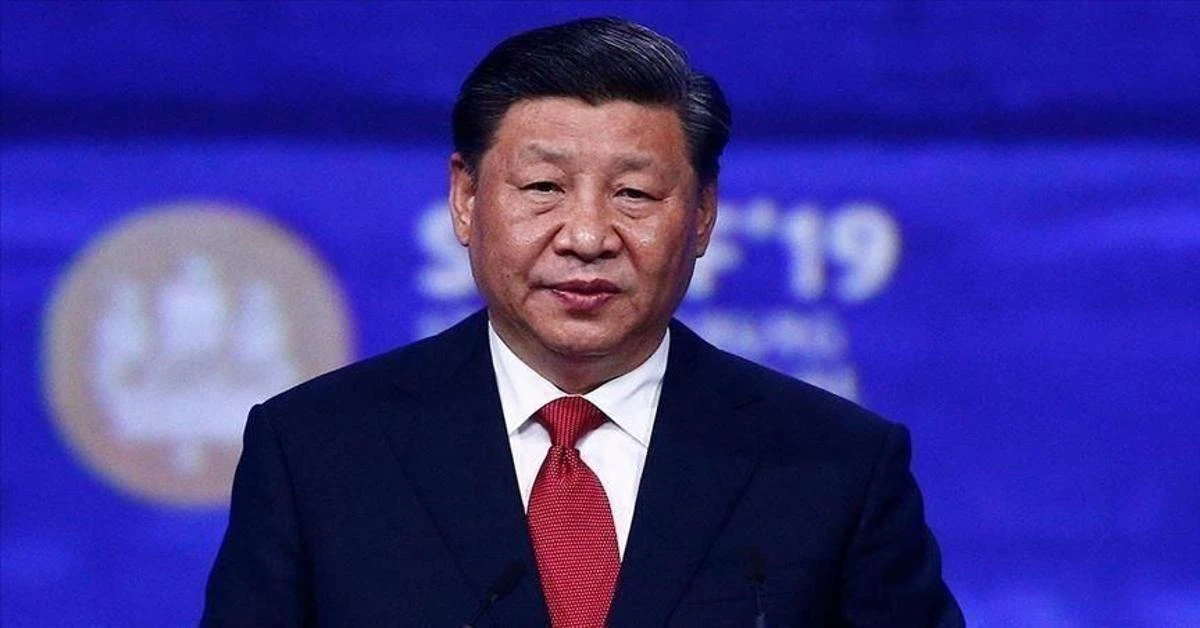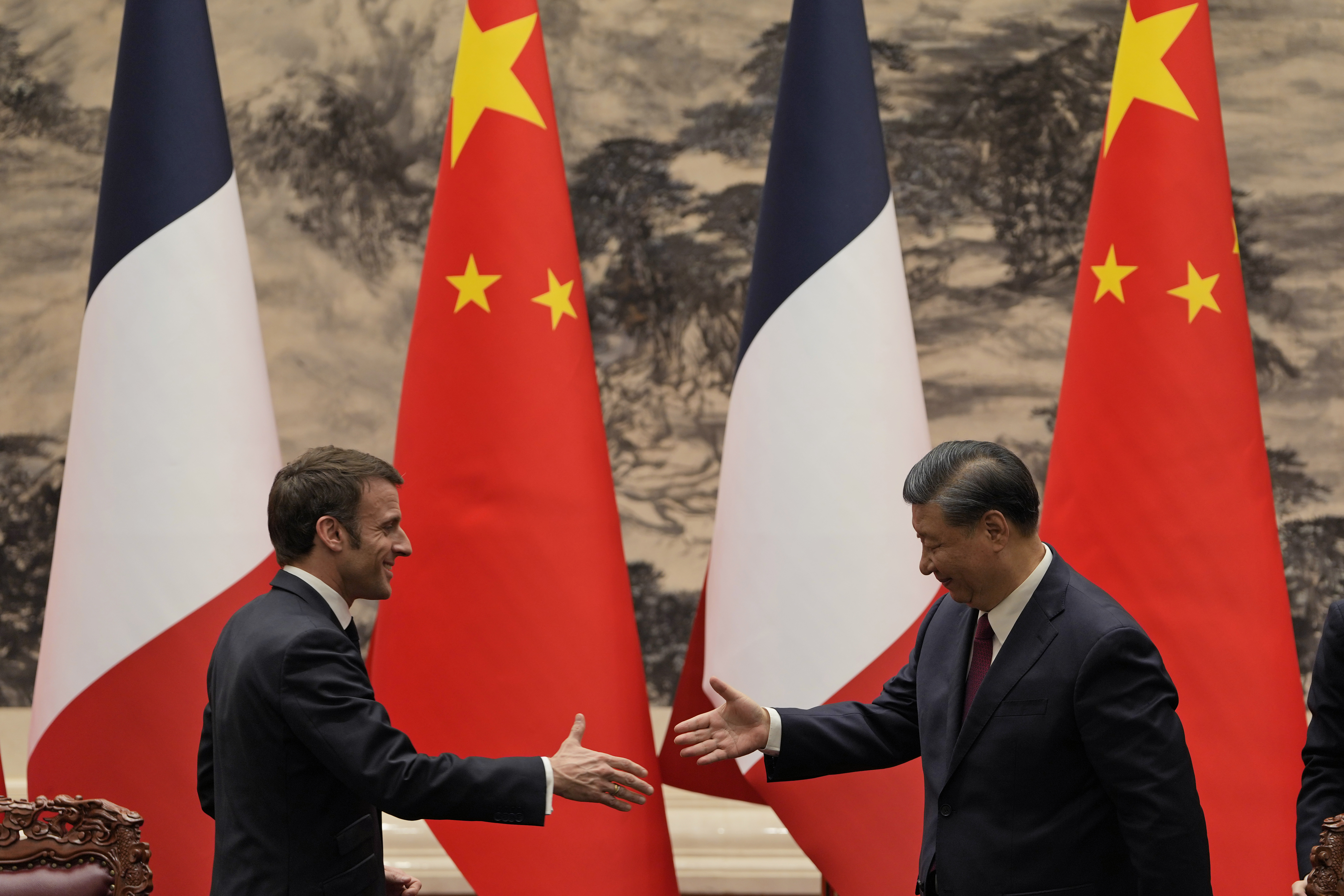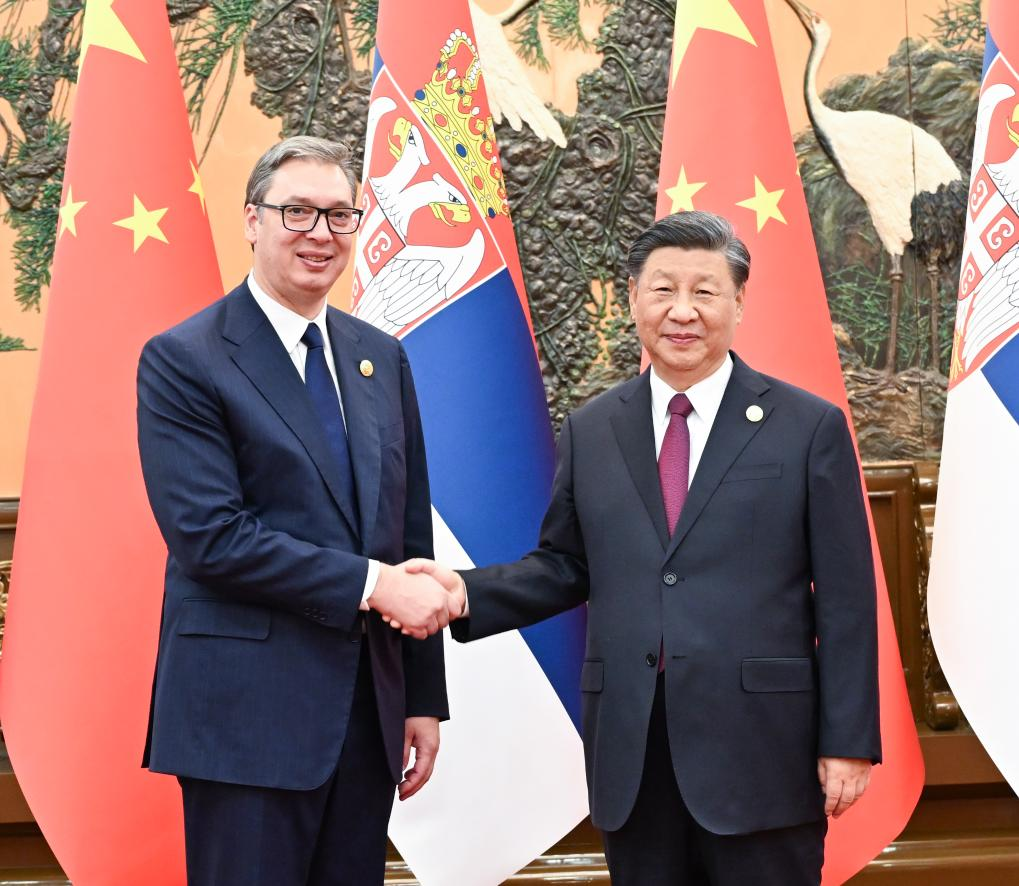China’s Xi embarks on Europe tour amid heightened global tensions

Xi Jinping’s Europe tour commences in France with a focus on trade, Ukraine and strategic ties, followed by pivotal stops in Serbia and Hungary, highlighting China’s Belt and Road Initiative priorities
Chinese President Xi Jinping on Sunday began a tour of Europe in a major diplomatic initiative at a time of heightened global tensions. Xi’s itinerary includes visits to France, Serbia and Hungary as Sino-European relations face challenges.
First stop France
The first stop of Xi’s European tour will be France, where he arrived on Sunday. On Monday, he is scheduled to hold talks with French President Emmanuel Macron and European Commission President Ursula von der Leyen in Paris.

The visit of Xi Jinping is seen by France as an important diplomatic milestone to commemorate the 60th anniversary of Franco-Chinese diplomatic relations. The visit is considered an opportune moment to discuss China’s broader relations with the EU.
Macron has also invited von der Leyen to attend the talks on Monday.
The event will occur before Macron hosts U.S. President Joe Biden for a similar state visit, underscoring Macron’s role as a key diplomatic figure in Europe.
Focus on Ukraine and Russia
The focus of the talks will revolve around various economic and strategic issues, particularly the ongoing conflict in Ukraine.
The talks with Macron will emphasize efforts to encourage China to use its influence over Russia to help resolve the conflict in Ukraine. While China officially maintains neutrality on this issue, its significant economic ties with Russia raise concerns about China’s position.
Moreover, the potential impact of China’s support on Russia’s military capabilities remains a matter of debate.
Commercial policies will also be at the forefront with efforts to address the trade imbalance and improve market access for European companies in China.
Despite the recent reduction in the EU’s trade deficit with China, concerns remain about unfair trade practices, especially in sectors such as green technology.
Visits to Serbia and Hungary
Xi’s subsequent visits to Serbia and Hungary have geopolitical significance, as both countries are closer to Moscow and play a key role in China’s Belt and Road Initiative in Europe.
Infrastructure projects such as the Budapest-Belgrade railway underscore China’s economic interests in the region.
Delicate balance of Hungary
Hungary, the first European Union country to join Xi’s prominent Belt and Road Initiative, struck a delicate balance between EU and NATO membership and a different sensibility toward building diplomatic and trade ties with autocracies in the East.
Rumors are circulating that during Xi Jinping’s visit to Hungary from Wednesday to Friday, he and Hungarian Prime Minister Viktor Orban may announce another electric vehicle production investment, this time involving China’s Great Wall Motor company.
However, Orban’s office has not yet confirmed the visit schedule despite numerous requests for information.
On the other hand, the visit to Serbia, which coincides with the anniversary of the NATO bombing of the Chinese embassy in Belgrade, presents an opportunity for China to shape global narratives, especially regarding Western actions and its own commitment to peace.
During his visit to Serbia, Xi will hold talks with President Aleksandar Vucic, whose government has developed strong ties with China.
Relations between Serbia and China have deep roots and have strengthened, especially since 1999. This important year saw an incident when NATO forces bombed the Chinese embassy in Belgrade during an air campaign to stop Serbia’s harsh crackdown on ethnic Albanians in Kosovo. The bombing killed three Chinese citizens and strengthened the bond of solidarity between the two countries.

In Serbia, China has established a presence with mines and factories scattered throughout the Balkan country. In addition, substantial infrastructure loans from China have financed the construction of roads, bridges and various facilities.
On the other hand, Hungary and Serbia signed an agreement with Beijing to modernize the railway linking their capitals, Budapest and Belgrade. This initiative is part of China’s Belt and Road strategy and aims to connect to the Chinese-controlled port of Piraeus in Greece, which serves as a gateway for Chinese goods to Central and Eastern Europe.
Vucic’s friend Xi Jinping
Much of this railway modernization project, expected to be completed by 2026 after facing numerous delays, is financed by loans from Chinese banks, capital eagerly sought by both Hungary and Serbia.
Before the visit, Vucic, who considers Xi a friend, emphasized Serbia’s intention to make more Chinese investments, especially in advanced technologies.
Source: Newsroom



